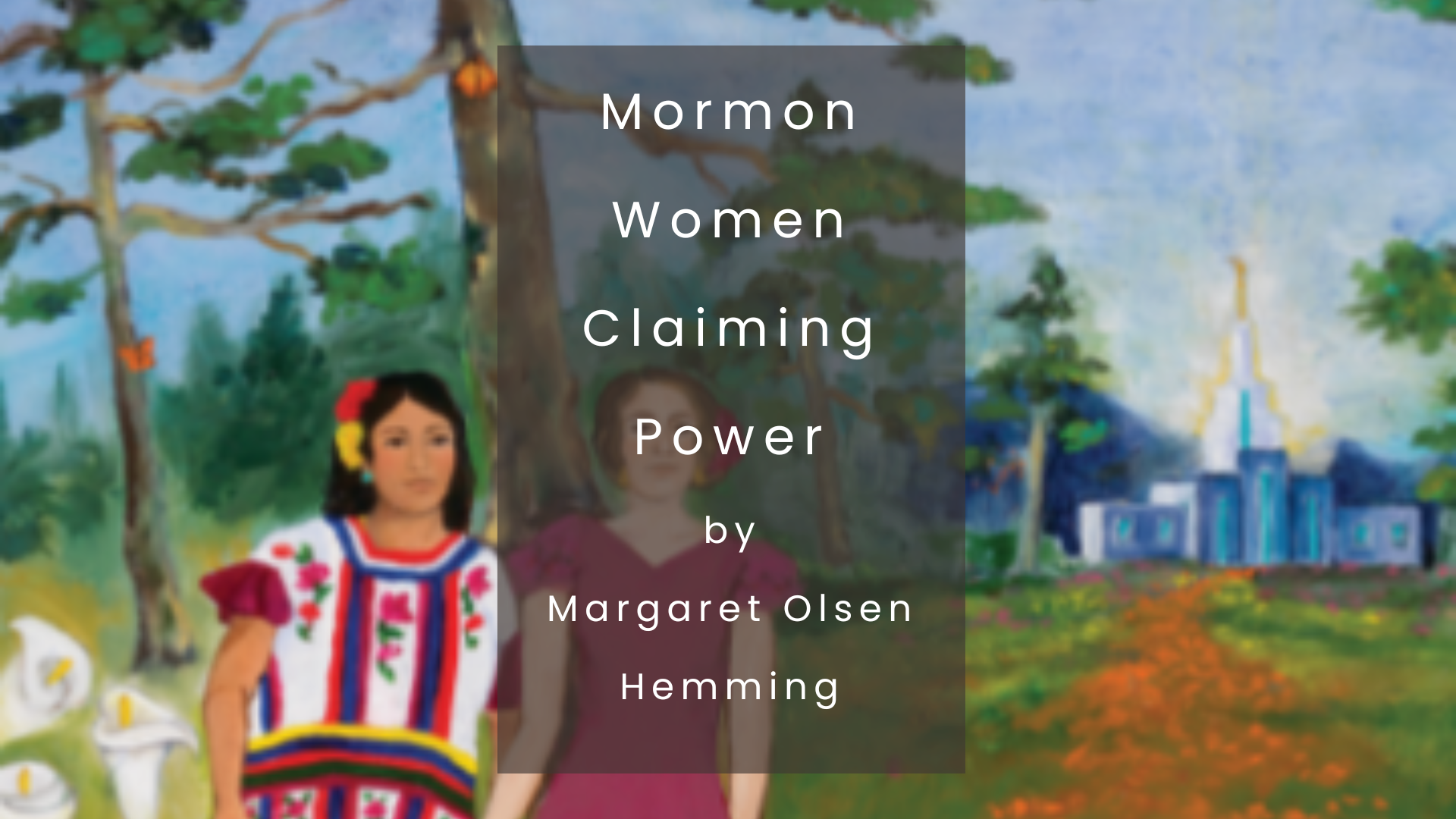Articles/Essays – Volume 53, No. 1
Mormon Women Claiming Power
As the editor of Exponent II, I have had innumerable Mormon men—progressive and orthodox—tell me that they would like to listen to women, but women just don’t step up and talk. From President Russell M. Nelson’s 2015 plea for women to step forward and be spiritual leaders[1] to ex-Mormon Reddit forums, men ask for women to speak but decline to change the structures and traditions that have pressured women to be silent. When women do start talking, they are often met with hostility, condescension, disinterest, or closed doors. In this environment, it is hard for women to confidently claim power. It often means shrugging off insults, letting go of others’ judgments, and ignoring those who would try to interrupt. It means rewriting your own story, refusing to let anyone stand between yourself and God. It means making people uncomfortable, including, sometimes, yourself.
In this issue, guest edited by Exponent II, we asked women to write about claiming power. We hoped that writers would think creatively about the idea of power, including traditional forms of authority in an organizational hierarchy but also going beyond this somewhat limiting definition. We wanted women to examine their engagement of power within their families, wards, workplaces, and selves. We were interested in the way Mormon women are using their power to empower other marginalized groups.
The response to the call for submissions for this issue was overwhelming. If I wasn’t intimately familiar with the vitality of the Mormon feminist community, I would have been astonished at how much women had to say about this topic. Reading through these women’s many stories of joy and frustration, heartbreak and resolve left me buoyed up and newly committed to sharing my voice without apology. This issue contains academic essays about undocumented Latina Mormons, interrelational power, and historical ads for abortion pills in Utah. We feature personal essays exploring the practice of women participating in blessings, how faith and stories can lend the power to change one’s life, and the long relationship between Exponent II and Dialogue. We have also included two roundtable interviews: one with women in positions of workplace authority and the other with women who have been ordained. Lita Little Giddins writes about art by Michelle Franzoni Thorley and reflects on the experiences of Mormon women artists of color. The poetry creates a satisfying arc that explores Mormon feminist theology. The short stories in the fiction section consider vulnerability and the deliberate choice to expose oneself to risk. The book reviews examine how literature reveals power imbalances and how Mormon women are claiming power in a variety of ways to address those imbalances. Finally, we close with a sermon about Bathsheba, sexual violence, and reclaiming the divine feminine.
The first time Exponent II guest edited an issue of Dialogue was in 1971. At the close of her introduction to that “pink issue,” Claudia Bushman wrote, “One major achievement, if we can claim any, is that ordinarily silent women have examined their lives and written about what they have seen. . . . Women have always been valued in the Church but not encouraged to say much. We hope that now and in the future more ladies will speak out and, what is more, be heard.”[2] Only half of Claudia’s wish has been fulfilled: women are speaking, but they are not always heard.
More spaces than ever, including my favorite, Exponent II, now exist for Mormon women to speak unapologetically and with candor. No one can reasonably claim that Mormon women are not stepping forward to add their perspectives to the most vital conversations within our church, our faith, and our communities. Learning about women’s experiences in Mormonism is not a niche specialty relevant only to other women but essential to understanding the lived history and theology of our faith tradition. If you are a current Dialogue subscriber, you will soon be receiving the Spring 2020 issue of Exponent II in your mailbox. We are excited for Dialogue readers who may not be familiar with our work to add Exponent II to their libraries by subscribing to our quarterly magazine. You can read more and subscribe at www.exponentii.org. We are all richer when women claim power through sharing their voices. May they be heard.
[1] Russell M. Nelson, “A Plea to My Sisters,” Oct. 2015, https://www.churchofjesuschrist.org/study/general-conference/2015/10/a-plea-to-my-sisters?lang=eng.
[2] Claudia Lauper Bushman, “Women in Dialogue: An Introduction,” Dialogue: A Journal of Mormon Thought 6, no. 2 (1971): 8.


 Back to full Issue
Back to full Issue

